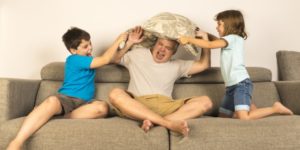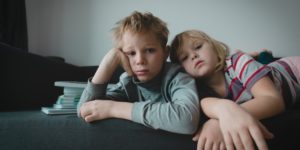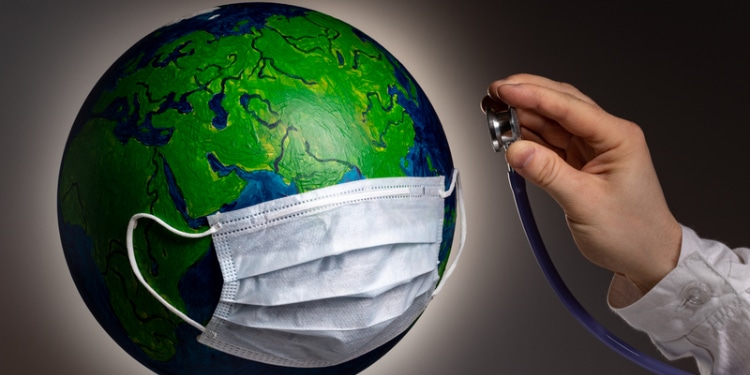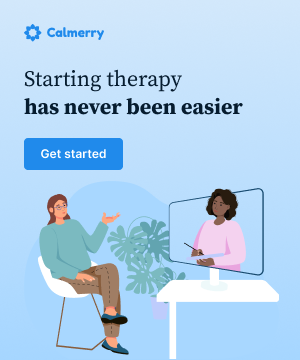









Coronavirus has turned the world upside down. Whether you get your news from TV, social media, or the Internet; it is impossible to escape its mention. By now, the physical effects of the virus are seared into our brains. Less attention, however, has been paid to the considerable psychological consequences. Here are some ways COVID-19 will have a lasting impact on our mental health.

COVID-19 is providing the world with unprecedented levels of stress. Not only do people have to worry about their physical health, but they are also concerned about other associated fallouts, including a lack of income and childcare. There is a lot to worry about and human beings are not very good at dealing with uncertainty. Even if you do not suffer from clinical anxiety, it will test your coping skills. If you already have an anxiety disorder, it could become an even more serious problem. It would not be surprising for people to feel overwhelmed and manifest their anxiety through panic attacks.
The coronavirus will no doubt increase the level of social anxiety around the world, even after it has subsided. First, many people will fear to get together at social events due to the possibility of becoming ill. Second, people with pre-existing social anxiety will use it as an excuse to avoid social gatherings, further exacerbating their anxiety. The irony is that social anxiety is not usually about catching germs, but coronavirus might cause fear of physical illness to become another reason to be socially anxious.
Speaking of germs, a large portion of people with OCD, obsess about them. The emphasis on germ avoidance brought on by the coronavirus will only fuel their obsessive thoughts and resulting compulsive behavior. It would also not be surprising to find many more people developing germ-related OCD as a result of the current outbreak.
Having a clinical fear of germs is called mysophobia. It is not the same thing as OCD, but it can be closely related and is often an associated condition. As you might imagine, a deadly and global pandemic is not going to reduce anyone’s fear of germs. Similarly to OCD, COVID-19 is only going to increase the prevalence of mysophobia and make it more severe for people who already had a germ phobia.

Due to the contagiousness of COVID-19, most of the world has been asked to practice social distancing. According to the CDC, this generally means avoiding gatherings of people and staying six feet apart from each other. Furthermore, people in some areas of the world that have been hardest hit by the virus have been ordered to stay in their homes and cease all face-to-face contact. Although communication is still possible through other means, being unable to congregate in normally acceptable ways can be very isolating. Generally, human beings crave connection and feeling isolated from others may have serious negative outcomes.
One could argue that our sense of connection was already threatened by the Internet and social media. After all, who hasn’t been absorbed in their phone or tablet even when they were with other people? However, COVID-19 could contribute to further long-term feelings of isolation. Please keep in mind that physical isolation does not have to mean social isolation. In this day and age, there are many ways to keep in touch with friends and family, including phone calls, texting, messaging, and video calls. Communicating with even one person a day can have a significant positive impact on your well-being.
Another consequence of social distancing is people getting used to a world that lacks physical touch. That could mean eliminating everything from handshakes to hugs and other forms of affection. Although keeping your distance is necessary for now, a world without physical touch can be incredibly damaging for one’s mental health. The fear is that people will continue social distancing even after the immediate danger of the coronavirus is over. After all, once you get used to the “new normal” it no longer seems so unusual.
When you experience high levels of stress, anxiety, and isolation; depression frequently follows. Think about all the ways that the coronavirus can contribute to depressive feelings. You might have lost your job and not know if you can pay your bills. Your comforting routines have been upended. The kids are out of school and need supervision 24/7. You are cut off from your support systems. You can’t go to the gym. In addition, when your physical health is threatened it can be very difficult to see anything optimistically. Because we do not know when the coronavirus will subside, there may be no relief in sight. When you take into account all of these challenges, it is not hard to understand how someone could feel depressed.
It is more important than ever to practice self-care. At the most basic level, it is advised to get at least seven hours of sleep, eat healthily, and get some form of exercise. Self-care will help keep you physically and emotionally healthy. You are no good to anyone if you have not met your own needs.
Sometimes, however, self-care is not enough. Due to the challenges of COVID-19, there is tremendous demand for professional counseling. Therapy can provide support and help develop tools to deal with anxiety and depressive feelings. While group gatherings are now discouraged, meeting with a therapist one-on-one is not yet prohibited. Additionally, many counselors practice online therapy, where counseling can be conducted through video conferencing and messaging platforms. Online therapy was already growing in popularity, but the coronavirus will likely further fuel its ascent. If you believe you are suffering from anxiety, depression, or you just want someone to talk to about your stressors; please seek out professional help.